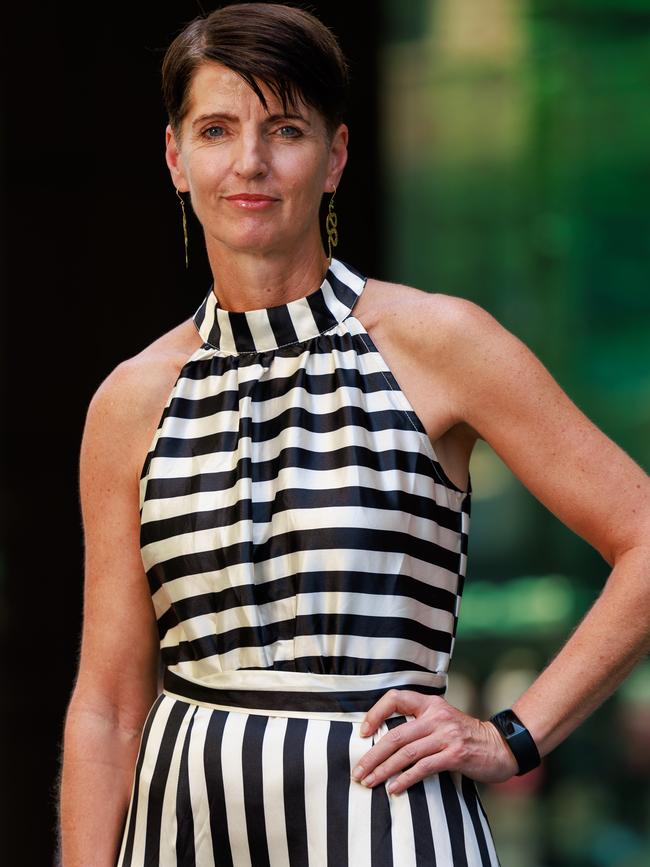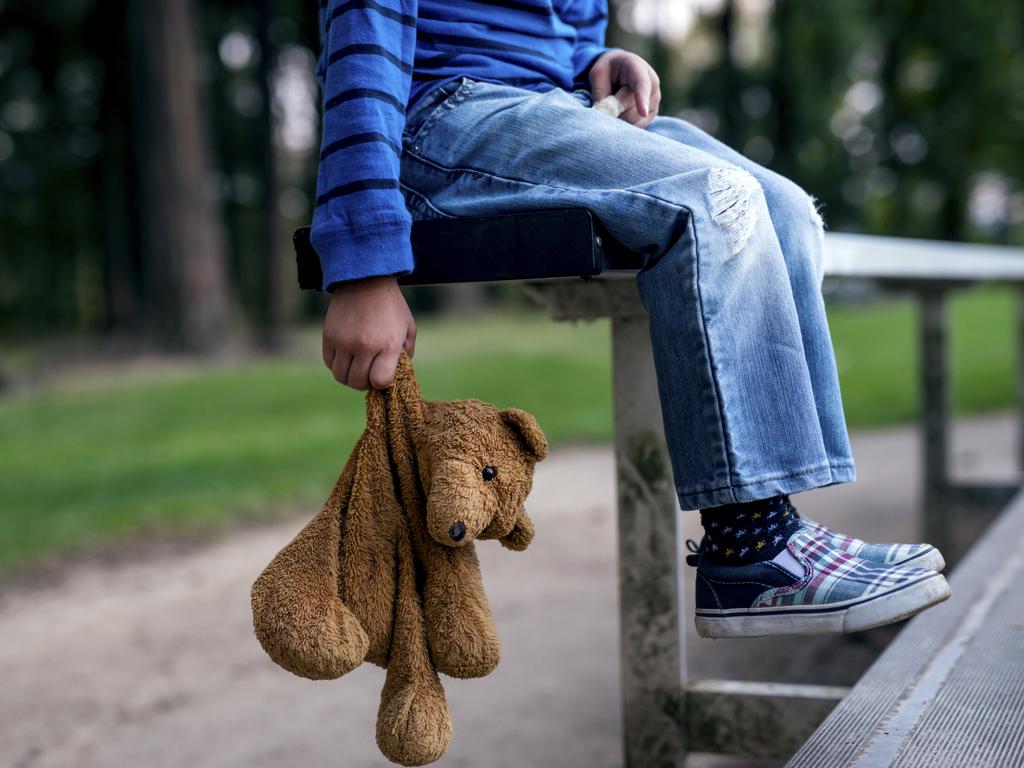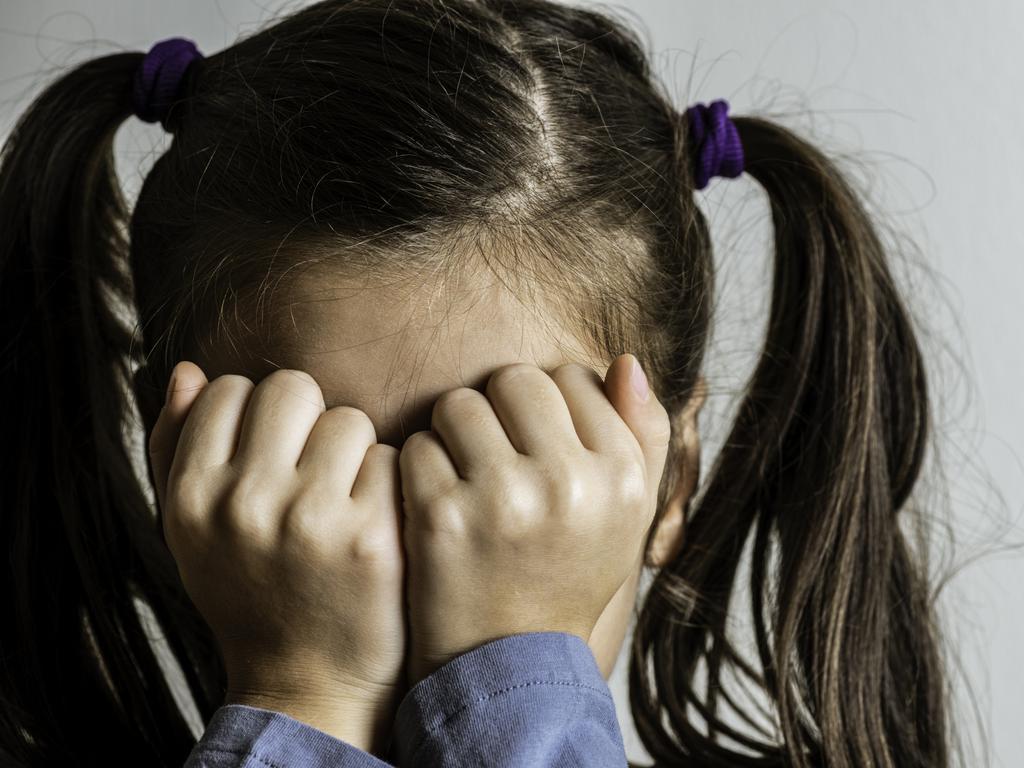NSW foster care system ‘damaged kids’, court finds
A foster child in the care of the NSW government had rotten teeth requiring removal and his appendix was infested with worms, but that’s not the worst the little boy endured, a magistrate has found.

A foster child in the care of the NSW government had rotten teeth requiring removal and his appendix was infested with worms, but that’s not the worst the little boy endured as he was shuffled from place to place and supervised by a roster of workers.
A Children’s Court magistrate has outlined a shameful litany of failures by NSW’s Department of Communities and Justice and the outside agency it funded to care for the six-year-old Aboriginal boy known by the pseudonym Ray and his younger siblings, who had all been removed from their parents.
In an extraordinary judgment Magistrate Nicole Ford said the department had damaged the children, a claim that heaps further pressure on the NSW government struggling to fix a broken child protection system.
“I am troubled on so many aspects about the children’s circumstances and have formed the view the (DCJ) secretary has not only failed to protect the children from harm but has caused harm to the children,’’ Ms Ford said.
She said little Ray, an emotionally troubled child, has had a “particularly distressing experience in care”. He has spent more than half his life in the out-of-home system with more than 100 adults acting as caregivers as he cycled through various placements, including 26 premises in one year.
Ms Ford said that since coming under the parental responsibility of the department, Ray needed to have his appendix removed because it was infested with worms. Recommendations from a dentist that his teeth be extracted under general anaesthetic were ignored for almost a year. “It is unacceptable for Ray to have his dental needs ignored for so long,’’ she said.
The little boy had lost weight, the court heard, because the “house parents’’ in one placement had restricted access to food and imposed a sugar-free diet without medical advice. The caseworker could not explain to the court why carers funded by the agency were not directed to adequately feed the children.
“The evidence was the children were distressed by the restricted diet,’’ the magistrate said.
Ray’s siblings, the youngest aged just two, have also been through a revolving door of placements, sometimes together and sometimes not, with the court hearing one long-term option for the youngest girl was declined due to the location and the family not being Indigenous.
At one stage Ray was housed in a serviced apartment for five months with a roster of workers to care for him but the magistrate said it was impossible to determine how many people had stayed with him. “It is possible to conclude it was too many,’’ she said. “All of the children have been living in arrangements that do not meet their needs and have caused them harm.’’
The NSW government concedes the use of emergency accommodation has skyrocketed, blowing out budgets and worsening the outcomes for vulnerable children. Some emergency accommodation can cost at least $2m a year for each foster child and a government review, announced last week, will investigate how taxpayer money is spent on this type of housing by commercial providers contracted by the department.
The agency in Ray’s case said it had looked for long-term carers, including making two appeals on social media last year, but the magistrate concluded efforts on this front were also unsatisfactory. “Although I accept there is a shortage of foster carers, more could and should have been done for these children to find a long-term foster placement,’’ she said.

The court heard all the siblings have complex problems. Ray has been diagnosed with ADHD and global developmental delay, and was described by a psychologist as emotionally and behaviourally troubled. “He has struggled with accepting limits and in response can either engage in self-harming or threatening behaviour,’’ Ms Ford said, adding he should be assessed for fetal alcohol spectrum disorder. “It remains unclear if the secretary has progressed arrangements for him to be assessed.”
The court heard the children were removed from their parents due to drug use, domestic and family violence, unstable housing and parenting incapacity. The father, known by the pseudonym Neville, had admitted suffering from drug-induced psychosis and had been jailed for assaulting the mother. They both have children from other relationships and had another baby as court proceedings in this case were under way.
The court heard the parents had taken some steps to deal with their parenting and drug and alcohol issues, had maintained contact with their children after their removal and wanted them back.
Neville had voiced concerns about how the state was caring for the children. “He is right to be distressed and concerned about the circumstances of his children since they have been in the parental responsibility of the minister,’’ the magistrate concluded.
She said there were “many risks’’ in sending the children back to their parents, particularly around domestic violence, but decided they couldn’t be allowed to languish in the system and agreed that planning can now commence for the children to be returned.
“Notwithstanding all of the concerns I have about the parents’ progress, I am of the view that the circumstances of the children have been so dire and untenable while in care and thus far there is no appropriate long-term placement offered and no placement on the horizon such that I could not be persuaded their experience in care will materially change, and in those circumstances I accept the secretary’s assessment that restoration is realistic within a reasonable period.’’
The judgment followed a report, released last week, by the Advocate for Children and Young People, citing damning evidence about children being placed in hotels, motels and other emergency housing. One young person said their emergency housing experience left them feeling like a “dog being moved from cage to cage”.

“It was just me on my own around … full-grown adults on drugs, homeless people, people with mental illness. It was disgusting,’’ one witness said. Another described being moved around motels and caravan parks with little supervision.
Announcing the review of the foster care system, Families and Communities Minister Kate Washington said the previous Liberal government had allowed the child protection system to spiral out of control: “We have begun work to repair the system but we have a long road to travel.”
In the latest judgment, Ms Ford noted the Family is Culture review into the over-representation of Aboriginal children in child protection by Megan Davis in 2019. Professor Davis said: “It is simply not acceptable to say that the workforce is underfunded and overworked. It may be factual, but it is not an acceptable explanation for poor practice in 2019.’’
Ms Ford said those comments remain true in 2024. “These children’s circumstances and the reasons proffered for them are not acceptable.”







